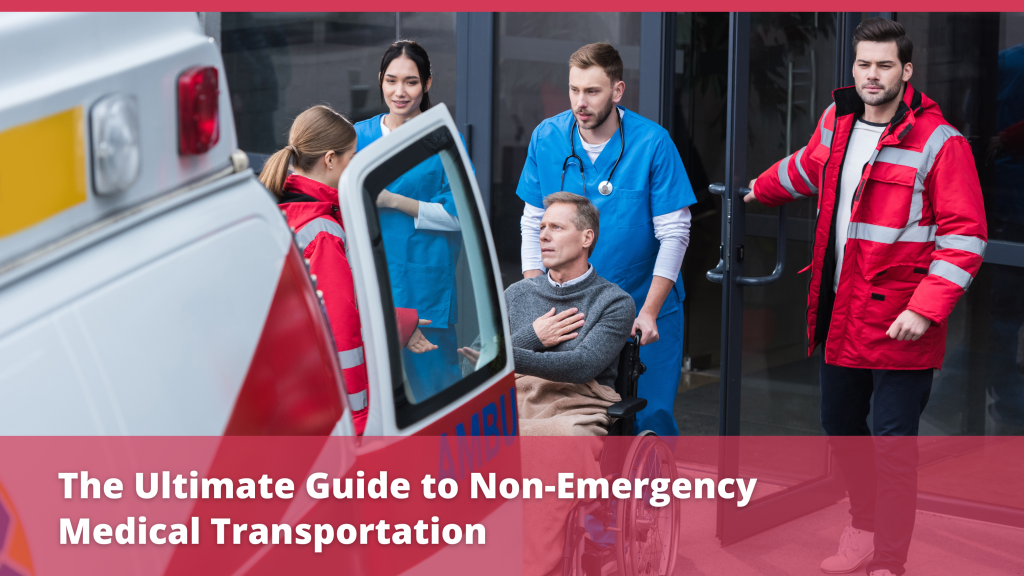New at Safr Care
The Ultimate Guide to Non-Emergency Medical Transportation

The Ultimate Guide to Non-Emergency Medical Transportation
Non-Emergency Medical Transportation (NEMT) is a vital service that ensures individuals who cannot drive themselves due to medical conditions, disabilities, or age-related limitations can access healthcare facilities. Whether it’s a routine check-up, dialysis appointment, or physical therapy session, NEMT provides a safe, reliable, and comfortable way for patients to get to and from their medical destinations. This guide will explore everything you need to know about NEMT, including its benefits, how it works, who it serves, and why it’s an essential part of modern healthcare.
What is Non-Emergency Medical Transportation (NEMT)?
Non-Emergency Medical Transportation refers to transportation services designed for individuals who do not require emergency medical care but need assistance getting to and from medical appointments. Unlike ambulances, which are equipped for life-threatening situations, NEMT vehicles are tailored for comfort and accessibility, often featuring wheelchair lifts, stretchers, and other accommodations for patients with mobility challenges.
Why is NEMT Important?
Transportation is a significant barrier to healthcare access for many individuals. According to studies, millions of Americans miss or delay medical appointments each year due to a lack of reliable transportation. This can lead to worsened health conditions, increased hospitalizations, and higher healthcare costs. NEMT addresses this issue by providing a dependable solution for patients who cannot drive or use public transportation.
Who Can Benefit from NEMT?
NEMT services are designed for a wide range of individuals, including:
- Seniors: Older adults who no longer drive or have difficulty using public transportation.
- Individuals with Disabilities: People with physical, cognitive, or sensory impairments that make transportation challenging.
- Patients with Chronic Conditions: Those requiring regular medical treatments, such as dialysis, chemotherapy, or physical therapy.
- Post-Surgery Patients: Individuals recovering from surgeries who need assistance getting to follow-up appointments.
- Low-Income Families: Families who cannot afford private transportation or taxi services.
- Rural Residents: People living in areas with limited public transportation options.
How Does NEMT Work?
NEMT services are typically arranged through healthcare providers, insurance companies, or directly with NEMT providers like SafrCare. Here’s how the process usually works:
- Eligibility Check: Patients or their caregivers confirm eligibility for NEMT services through their insurance provider or healthcare program.
- Scheduling: Once eligibility is confirmed, the patient schedules a ride by providing details about their appointment, pickup location, and destination.
- Vehicle Dispatch: On the scheduled day, a NEMT vehicle arrives at the patient’s location. The vehicle is equipped to meet the patient’s specific needs, such as wheelchair accessibility or stretcher transport.
- Transportation: The patient is safely transported to their medical appointment, accompanied by a trained driver or medical escort if needed.
- Return Trip: After the appointment, the NEMT service ensures the patient is transported back home or to another designated location.
Types of NEMT Vehicles
NEMT providers use a variety of vehicles to accommodate different patient needs. These include:
- Wheelchair-Accessible Vans: Equipped with ramps or lifts for patients who use wheelchairs or mobility scooters.
- Stretcher Vehicles: Designed for patients who need to lie down during transport, such as those recovering from surgery.
- Sedans and SUVs: Suitable for ambulatory patients who do not require special accommodations.
- Non-Emergency Ambulances: Used for patients who need medical monitoring during transport but do not require emergency care.
Benefits of NEMT Services
NEMT offers numerous benefits for patients, caregivers, and healthcare providers:
- Improved Access to Care: Ensures patients can attend medical appointments, reducing missed or delayed care.
- Enhanced Safety: Provides trained drivers and vehicles equipped for medical needs, ensuring safe transport.
- Cost-Effectiveness: Often covered by insurance, Medicaid, or Medicare, making it an affordable option for patients.
- Peace of Mind: Relieves the burden on family members and caregivers who may not have the time or resources to provide transportation.
- Better Health Outcomes: Regular access to medical care leads to early detection and management of health conditions.
How to Choose the Right NEMT Provider
When selecting a NEMT provider, consider the following factors:
- Reputation: Look for providers with positive reviews and a strong track record of reliability.
- Safety Standards: Ensure the provider conducts background checks on drivers and maintains well-equipped vehicles.
- Accessibility: Choose a provider that offers vehicles tailored to your specific needs, such as wheelchair accessibility.
- Insurance Coverage: Verify that the provider accepts your insurance or healthcare program.
- Customer Service: Opt for a provider with responsive and helpful customer support.
The Future of NEMT
The NEMT industry is evolving rapidly, driven by advancements in technology and increasing demand for accessible healthcare services. Some trends shaping the future of NEMT include:
- Digital Platforms: Mobile apps and online booking systems are making it easier for patients to schedule and manage rides.
- AI and Automation: Artificial intelligence is being used to optimize routes, reduce wait times, and improve efficiency.
- Integration with Telemedicine: As telemedicine grows, NEMT services are adapting to support virtual healthcare visits.
- Sustainability: Providers are exploring eco-friendly vehicles to reduce their environmental impact.
Conclusion
Non-Emergency Medical Transportation is more than just a ride—it’s a lifeline for millions of individuals who rely on it to access essential healthcare services. By addressing transportation barriers, NEMT ensures that no one has to choose between their health and their ability to get to a medical appointment. Whether you’re a senior, a person with a disability, or someone managing a chronic condition, NEMT provides the support you need to stay healthy and independent.
If you or a loved one could benefit from NEMT services, consider reaching out to a trusted provider like SafrCare. With their commitment to safety, reliability, and patient care, SafrCare is dedicated to making healthcare accessible for everyone.
